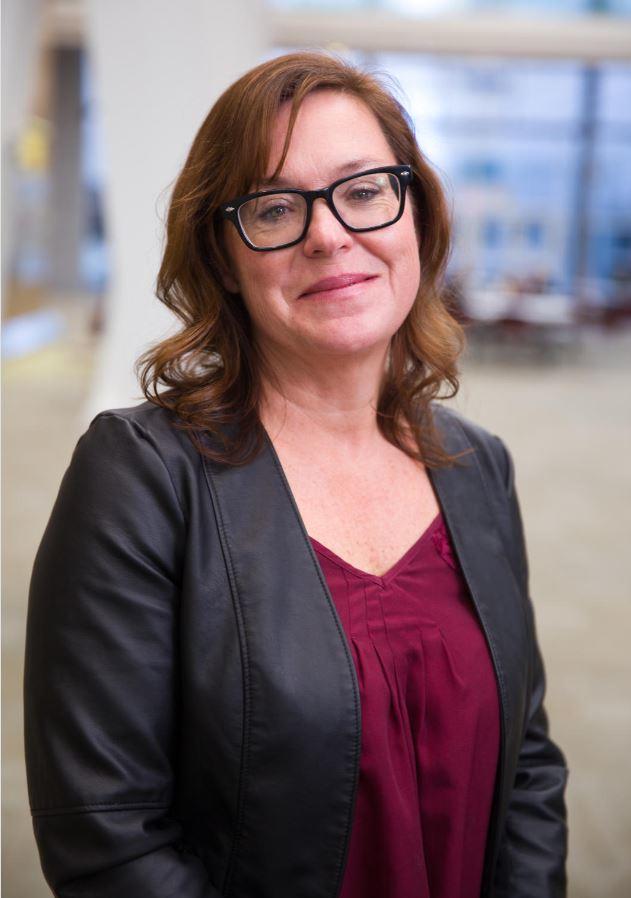March 6, 2018
Some Calgarians don't have anywhere to live and Katrina Milaney wants to know why

Katrina Milaney, PhD, has spent more than 15 years working with vulnerable populations.
Riley Brandt, University of Calgary
Katrina Milaney is a born-and-raised Calgarian who has witnessed with growing alarm a dramatic increase in homelessness in the city over the last few decades. As a scholar, she was deeply troubled. “There has been a lot of change in the city. Between the 1990s and early 2000s, homelessness increased over 800 per cent.”
Milaney isn’t a bystander — she has spent more than 15 years working with vulnerable populations as a researcher and leader with several of Calgary’s homeless service agencies.
Milaney says it’s big cuts to housing and mental health funding that puts people in emergency shelters, and lots of people cycle in and out of various places like shelters, emergency rooms and jails. “There is a lot of movement, but there is no place for them to go,” she says.
“It’s big decisions on how we invest in public policy that has a big impact on marginalized groups,” she says.
Community researcher has interest in how ideology affects public systems
Milaney is a public health researcher at the University of Calgary Cumming School of Medicine and has an interest in how political and economic ideology impacts public systems.
Her work history includes multiple positions in senior leadership in the not-for-profit sector and many administrative roles including membership in an advisory committee on housing and homelessness to that reported to the premier of Alberta.
In 2015, she led a research project with the Calgary Recovery Services Task Force that included 26 homeless-serving agencies, government, and community groups collaboratively responding to the complex health care and housing needs of homeless people in Calgary. This project assessed the health needs and experiences of 300 chronically homeless Calgarians and led to the development of several recommendations to Alberta Health for enhanced co-ordination and streamlined services for Calgary’s most vulnerable citizens. This research and collaborative approach led to an investment of $750,000 in new funding from Alberta Health to advance the recommendations.
“Being a part of this committee was so rewarding. The work we did was only possible because we engaged the organizations on the front lines; that’s where the real work happens,” says Milaney, a member of UCalgary’s O’Brien Institute for Public Health, and part of the Department of Community Health Sciences.
Her work with the Calgary Recovery Services Task Force earned her a 2017 Peak Scholar Award for Entrepreneurship, Innovation and Knowledge Engagement. Scholars are nominated for their collaborative research, resulting in a positive social or economic impact in our communities.
Steps to reducing homelessness
Calgary is experiencing serious housing issues on two fronts: people who have no homes, and people who are strapped for cash to pay for decent housing. The most recent numbers say there are approximately 3,430 people experiencing homelessness in Calgary — a city with a population of 1.2 million. Households that spend 30 per cent or more on housing are defined as having a ‘housing affordability problem.’ In Calgary, approximately 14,000 households fall into this category, and there are an additional 15,610 households considered to be at imminent risk for homelessness because they spend more than 50 per cent of their income on housing.
Milaney says there are a lot of myths about homelessness and Calgarians need to start having open debates to understand the issue. “The number one cause of homelessness is lack of affordable housing, not mental health issues,” she says. “Mental health is a risk factor, but there are plenty of people with mental illness that are not homeless.”
Milaney says we need to stop thinking that homelessness is an individual’s problem and think of the issue in a different way. “Society is obsessed with broken people, but it’s the systems that are broken.”
